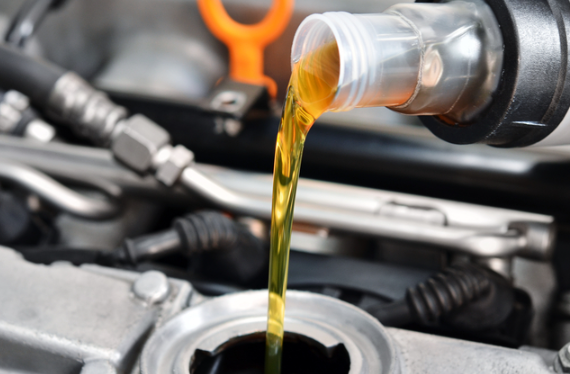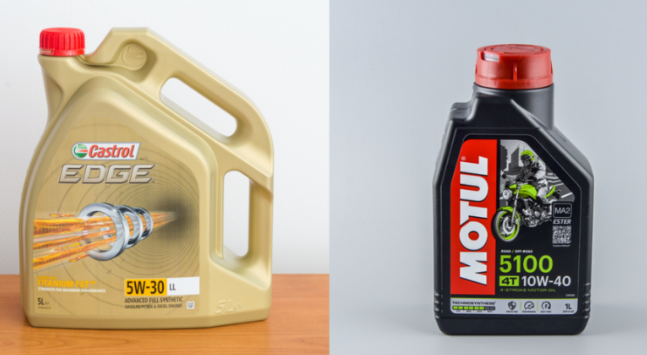Engine oil weight is a factor that must be taken into consideration when choosing the right type for one’s vehicle. The automotive industry has seen the emergence of multi-grade engine oils, like 10W40, 5W30, and 20W50. These oils go through extensive testing in labs to ensure they meet stringent quality standards, yet their chemical components cannot be measured with the naked eye.
It is possible to get an idea about how each oil performs by examining its numerical designations (e.g., 10W40). To make an informed decision regarding which engine oil weight to choose, it is essential to understand the differences between each option and weigh them against one another accordingly. With this knowledge, drivers can select an optimal solution tailored specifically to their needs.
⚡️Other article:
Can I Use 10W40 Instead Of 5W30?

Using an incorrect oil grade in a car engine can have severe consequences on its performance. If you use 10W40 instead of 5W30, the vehicle may be subject to different problems, which could eventually reduce overall efficiency. It is essential to understand why using the wrong grade of oil should be avoided at all costs.
What Will Happen If I Put 10W40 Instead Of 5w30?
Using the wrong type of oil in an engine can have serious consequences. In particular, if a 5W30 is needed but a 10W40 is used instead, there could be significant damage caused to the engine due to the thicker viscosity of the 10W40. Interchanging between engine oils should generally be avoided as it can often lead to unexpected results and unwanted complications.
The main issue with using a 10W40 Instead Of a 5W30 is that it’s designed for warmer temperatures and won’t flow properly when cold – leading to clogging or other issues related to inadequate lubrication. Once turned on, this thick oil will struggle even more as its viscosity makes it difficult for it to reach all components requiring lubrication. Consequently, this could result in decreased performance, increased wear and tear on internal components due to friction, and, ultimately, reduced lifespan of your engine overall.
Can I Mix 10W40 And 5W30?
Mixing different oil weights can be hazardous to your engine health. Inexperienced car owners should be aware that while it may seem like a good idea to mix 5W30 with 10W40, it is not recommended in most cases. The resulting mixture of thinner and thicker oils will not provide the optimal viscosity range for hot or cold weather; this could lead to increased friction between engine components and ultimately cause damage.
In some instances, however, nearly identical multi-grade oils can be mixed without issue. It is still advised, however, to stick with the same brand and type of oil when mixing them together. Doing so will help ensure that your vehicle receives the best lube protection possible from both grade combinations working together effectively.
Comparison Chart (10W40 Vs. 5W30)
| 10W40 | 5W30 |
| High viscosity oil | Low viscosity oil |
| Thicker type of oil | Thinner type of oil |
| Best for hot temperature area | Best for cold temperature area |
| Suitable for older model car engines | Suitable for newer model car engine |
| Not suitable for often sat-down engines | Suitable for often sat-down engines |
| SAE Certified | SAE Certified |
| Lubricates well | Lubricates well |
In-Depth Discussion – 10W40 Vs. 5W30

Understanding the grades of engine oils is imperative for ensuring that the right oil is chosen for any given application. There are four types of engine oils – Conventional, Semi-Synthetic, Synthetic, and Racing Oils – each having its own grade and grading system. It is important to note that each type has its own purpose, making it all the more necessary to understand which grade best suits a particular situation before making a decision.
What Do 10W40 And 5W30 Means?
The 10W40 and 5W30 engine oils are closely related yet different in their performance. Understanding the nuances of each oil’s reaction and performance is essential.
What Does 10W40 Mean?
A difference can be observed upon separating the two parts of grade 10W40. The number preceding the letter ‘W’ indicates this oil’s cold temperature tolerance, while the number following it suggests its hot temperature tolerance. Thus, with all this in mind, it is safe to conclude that 10W40 is suitable for use as an engine oil.
What Does 5W30 Mean?
It is observed that separating the two parts of 5W30 engine oil reveals two distinct numbers. The first number, denoted by 5, indicates how effectively this type of oil works in cold temperatures, while the second number after the letter ‘W’ specifies its capacity to provide satisfactory performance in hot environments.
Which One Is Higher In Viscosity – 10W40 Vs. 5w30?
Viscosity is determined by the combination of two numbers in an oil’s grade. The first number denotes thinness, with the lower numbers indicating a thinner oil, 5W30 being thinner than 10W40. In contrast, the second number indicates thickness, and higher numbers indicate thicker oils; 10W40 is thicker than 5W30. Consequently, this results in 10W40 having a higher viscosity than 5W30.
Which One Gives High Mileage – 10W40 Or 5W30?
It has been established that thicker and more dense oils provide increased mileage. In this regard, 10W40 is known for its thick consistency and provides higher mileage than 5W30. Even though the latter does not offer the same level of performance in terms of miles per gallon, it performs exceptionally well when it comes to colder temperatures, making it an ideal option for those who need reliable oil, even in lower temperatures.
Which One To Choose – 10W40 Vs. 5W30?
It is essential to find the right type of engine oil for your vehicle. The answer lies in consulting your user manual and selecting the recommended engine oil. This is likely to be the best option available as it will be tailored to suit the needs of your engine. If you are unable to locate the exact specification, you can consider switching between different varieties, such as 10W40 for hotter climates or 5W40 for colder conditions. Additionally, 5W30 can also work well if your car is not driven regularly and remains idle for long periods.
Final Words
The primary purpose of engine oil is to protect the engine, and it is essential to adhere to the owner’s manual recommendations when choosing an appropriate multi-graded oil. Experimentation with different oils or switching between different viscosity oils can potentially lead to damage and should be avoided. Sticking with a single type of engine oil will improve overall performance in terms of horsepower, RPMs, and other variables.

Its like you read my mind! You appear to know a lot about this, like you wrote the book in it or something. I think that you can do with some pics to drive the message home a bit, but other than that, this is wonderful blog. A great read. I’ll certainly be back.